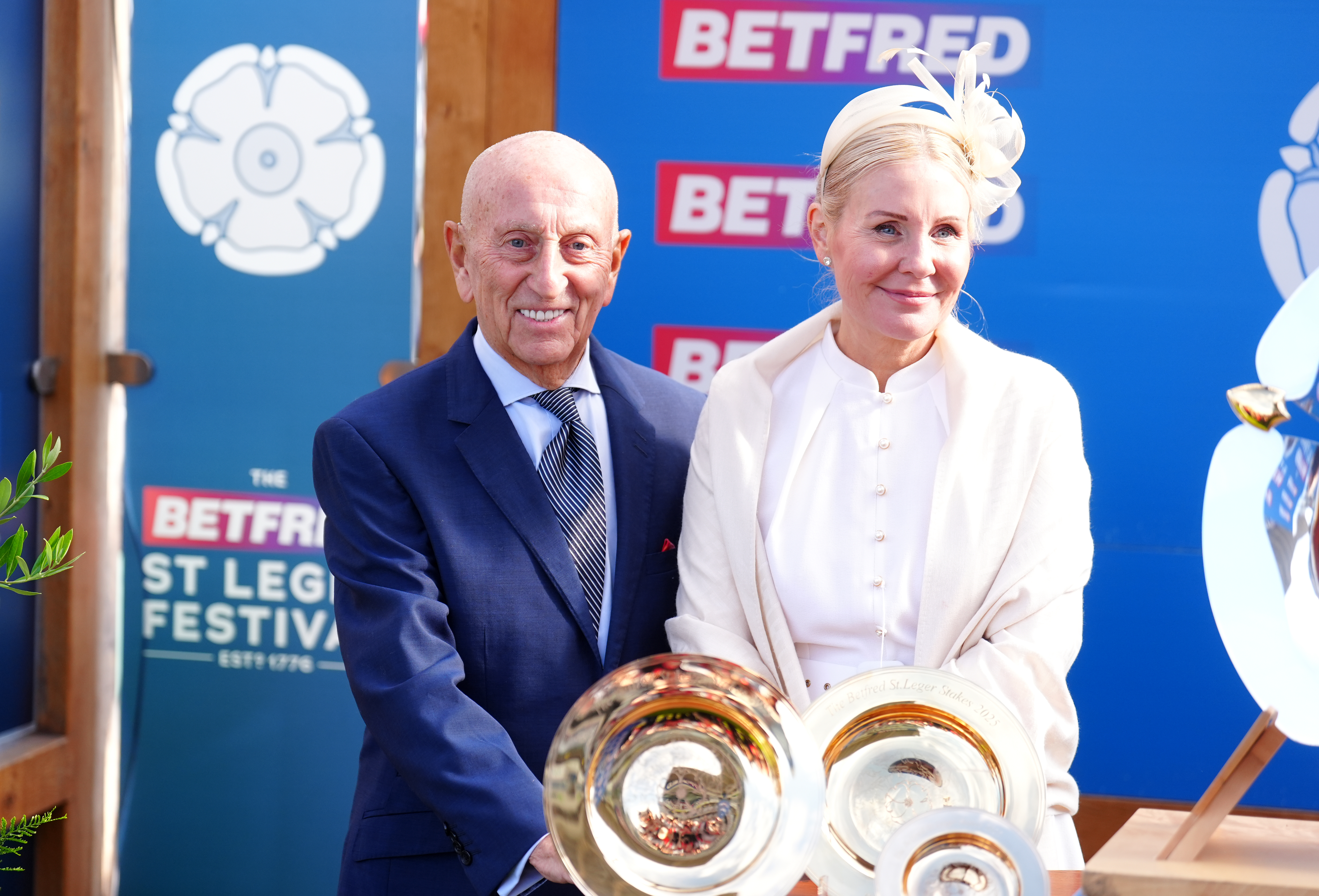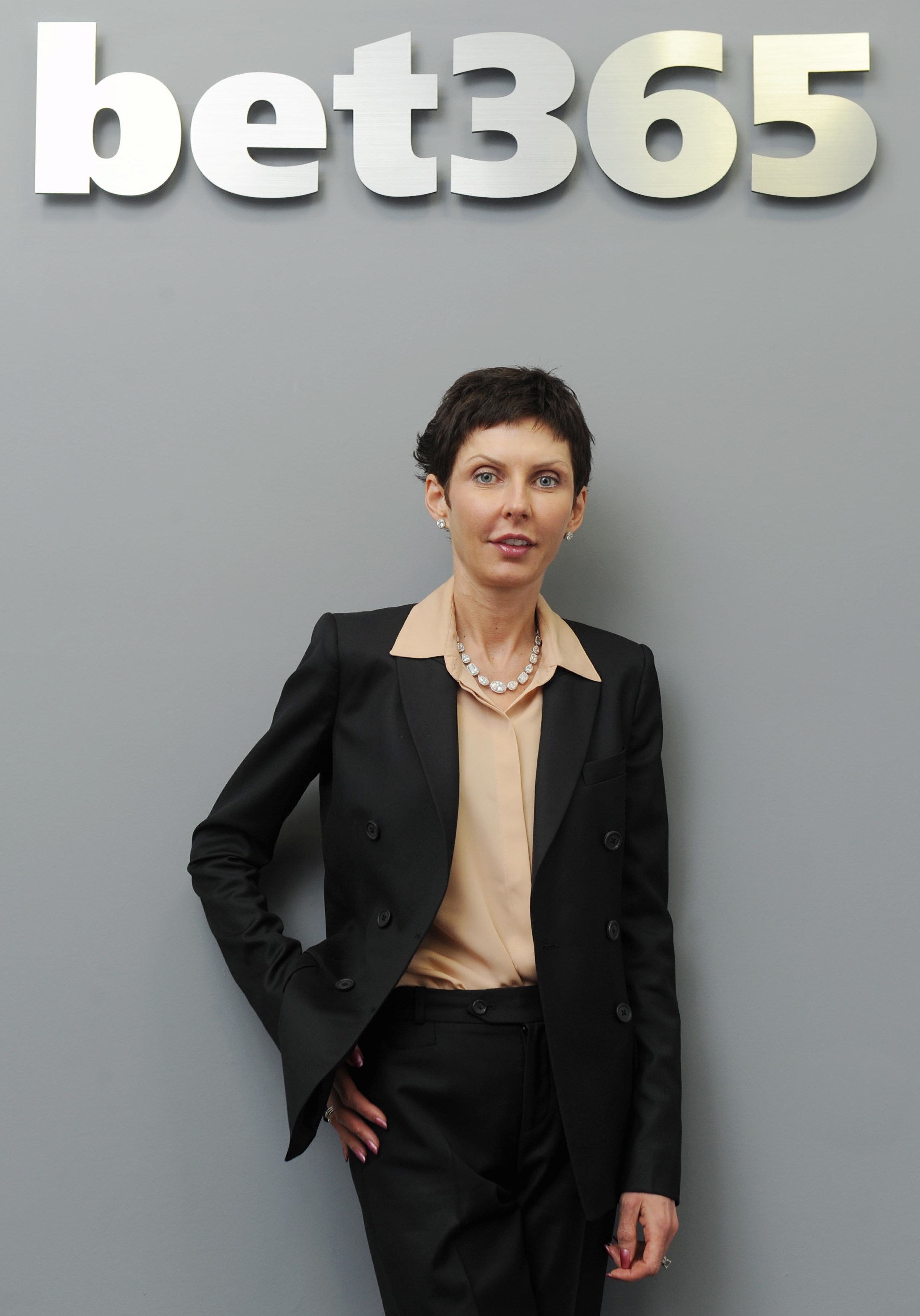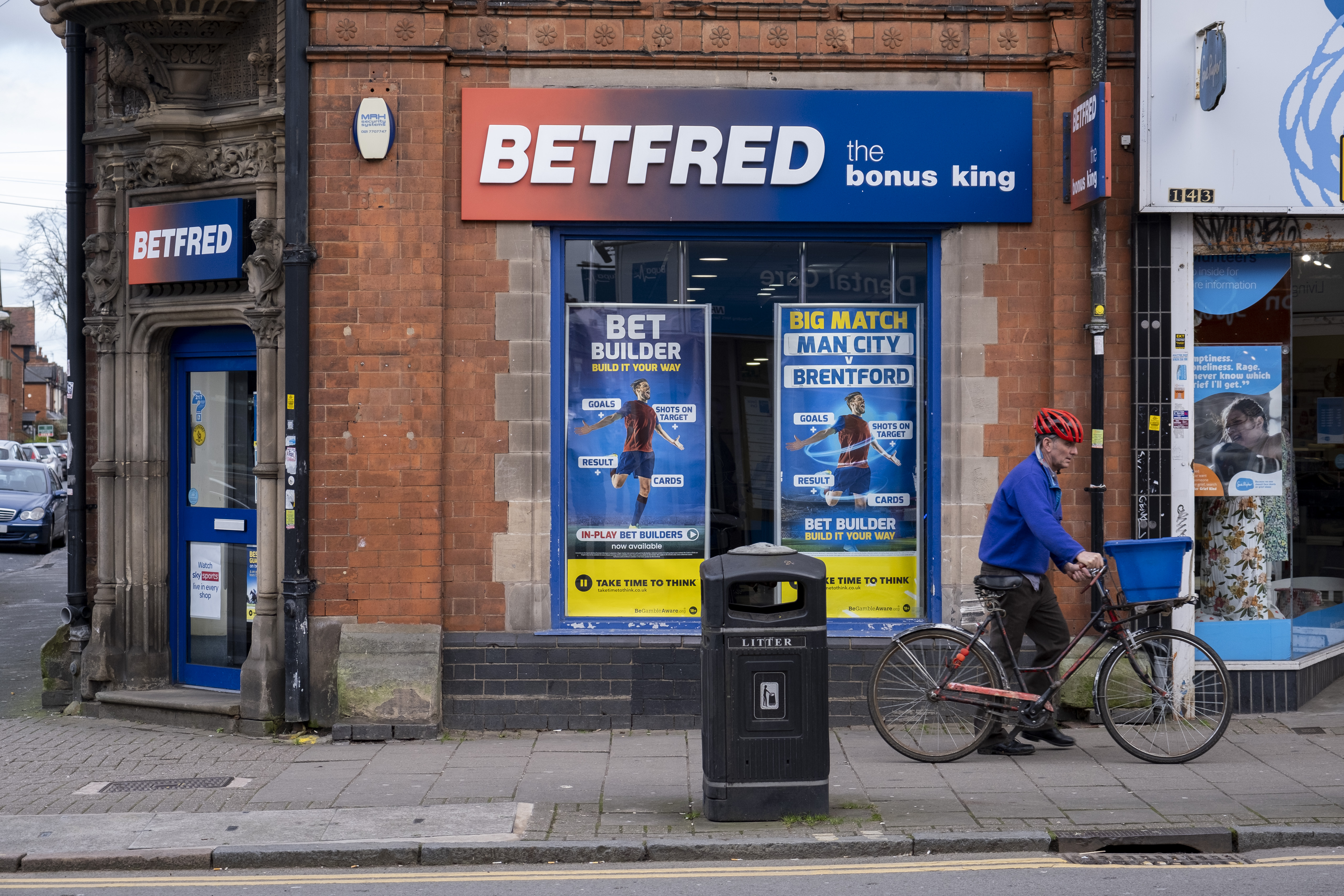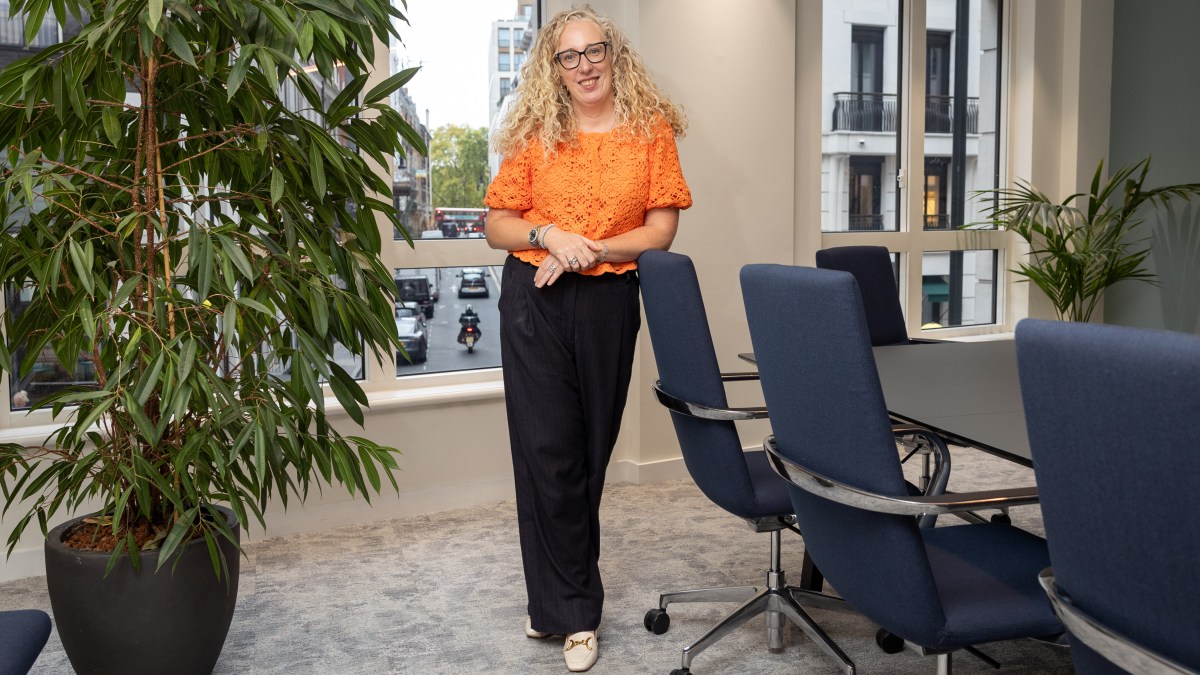Britain’s second-biggest taxpayers will close their entire estate of nearly 1,300 betting shops if Rachel Reeves increases gambling taxes in the budget, The Sunday Times can reveal.
Almost 7,000 UK jobs could be lost at Betfred, the Warrington-based bookmaker owned by the siblings Fred and Peter Done, its bosses said. “The most frightening element is we’re going to lose the whole retail business,” said Joanne Whittaker, chief executive. “I’m not scaremongering … I’m not being alarmist.”
Reeves is poised to increase duties on sports betting from 15 to 30 per cent and on machine and online slots from 20 to 50 per cent in the budget on November 26. Gordon Brown, the former prime minister, and more than 100 Labour backbenchers have pushed for the changes, which would raise an estimated £3.2 billion.
While it has been argued that this would be enough to fund the scrapping of the two-child benefit cap, Whittaker said the rises could precipitate the death of the high-street betting shop. “If the impact to us is that we lose the whole estate, that’s the same for all of our counterparts,” she said.
The UK has roughly 5,900 licensed betting shops, employing 46,000 people.
Fred Done opened his own site in 1967 after winning £200 from a wager on England winning the World Cup final the previous year. Done Bookmakers changed its name to Betfred in 2004. Fred Done remains chairman of the company.

Fred Done with his partner Nicola at the St Leger Stakes in Doncaster last month
MIKE EGERTON/PA
The Done family is Britain’s second-biggest taxpayer, contributing £273.4 million to the Exchequer, according to The Sunday Times Tax List 2025.
Whittaker has written to Reeves and to Lisa Nandy, the culture secretary, to warn them of the consequences of tax rises. Citing internal analysis and the impact of recent similar rises overseas, she wrote that “these proposed changes would produce the opposite of their intended effect: reducing tax revenue, [and] accelerating black market growth”.
In an interview with The Sunday Times, she explained that it was unusual for anyone from Betfred to make a public intervention, but it was necessary because the stakes were so high. “Why did we write the letter? It’s not like me. It’s not our general approach,” she said.
A betting tax shake-up has been in the works for several months, but Whittaker conceded she had perhaps been “stupid and naive” in assuming that high street shops would not be subject to the changes. “We’ve got people in the Treasury who don’t understand our business,” she said.
Avoiding the limelight
Campaigners have long argued that a relaxation of betting laws under Sir Tony Blair and Brown left Britain as a “Wild West of gambling”. Problem gambling, it is argued, has surged alongside the number of online betting websites and apps.
Such criticism has led to privately owned firms such as Betfred and the Stoke-based bet365, owned by the reclusive billionaire Denise Coates, to shy away from the limelight.

Denise Coates
ALEX SEVERN/BET 365/PA
But straight-talking Whittaker has decided to put her head above the parapet. It is a change in tack for a chief executive who fell into the industry by chance. “I did shit in my A levels. I drank too much,” she said. “I was in the Hacienda and the Boardwalk and all the clubs in Manchester.”
The turning point came when Whittaker met Fred Done’s daughter during a part-time degree at Bolton College and they worked together at one of Done’s shops in Wythenshawe. After a short stint working at UBS in Zurich in the early 2000s, Done gave Whittaker the job of introducing the company’s first electronic payments systems and website.
“We launched our online business, which was a complete and utter disaster. I remember Fred was at Cheltenham and I’d be ringing him to say we’ve paid out the same customers five times,” she said.
After leaving the firm to have the first of her three children, Whittaker created Fideliti, a company that specialised in the provision of childcare vouchers and runs childcare voucher schemes. Done gave her a £100,000 loan and told her not to pay herself a penny until the business turned a profit. By 2013, Fideliti was turning over more than £60 million. Whittaker returned to Betfred in 2021 as chief executive when Done switched to being the company’s chairman.
A study by campaign group Gamble Aware in 2023 found that 20 per cent of the population was directly or indirectly harmed by gambling. Analysis this summer by the Gambling Commission found that 2.7 per cent of adults were at risk of problem gambling. Analysis by the NHS found that 0.4 per cent of adults experienced problem gambling.
Whittaker accepts that bookmakers will always draw criticism about the impact betting has on society. “The gambling industry, we’re painted as, argh, well…” she paused. “Well, we’re not positively received, let’s say. But I’m really proud of our business. We’re a big part of the community in some areas. The average bet is £9 in our betting shops. This is not people coming in spending tens of thousands of pounds. People come and sit and have a coffee and chat with us. People don’t want to hear that. But what’s wrong with it? We’re not the scourge of society. We are offering a really good service in a comfortable environment for people that want to have a bet.”
Black market
Nevertheless, many people will welcome the death of the betting shop if Reeves announces industry tax rises. Whittaker said this would simply drive gambling further underground to firms that are not licensed to take bets, but are still easily accessible online.
Illegal betting websites took 71 per cent of Europe’s online betting and casino wagers last year, according to data analyst Yield Sec. “The safest place for anyone to have a bet is with a UK regulated bookmaker,” said Whittaker. “OK, we haven’t always got it right in the past and there’s been a lot of investment [gone] into how we protect players.
“We don’t need people looking down on the people that choose to have a bet as ‘they’re making wrong life choices’. If somebody wants to have a bet, they should bet with a UK regulated bookmaker who has the protection mechanisms in place to make sure that they gamble affordably and responsibly.”
She cited a recent report by the Gambling Commission that found one of the top four reasons for people to place bets on so-called black market websites is that they accept wagers from problem gamblers who have excluded themselves from regulated bookmakers.

Betfred says all its shops are at risk
MIKE KEMP/IN PICTURES/GETTY IMAGES
Whittaker said: “They know they’ve got a gambling problem and either through a conversation with a gaming company in the UK or through their own choice they’ve chosen to self-exclude. That’s the biggest audience that are going to the black market because when they change their mind, we won’t let them bet with us again.”
Many in Westminster think that Brown, a long-time proponent of higher gambling taxes, is the driving force behind Reeves’ expected tax rise. Asked what she would say if she met the former prime minister, Whittaker responded: “Come and look at our numbers. Come and look at the modelling and the impact that the tax rates he’s proposing will have on UK jobs.”
Last weekend, this newspaper revealed William Hill owner Evoke was preparing to shut up to 200 betting shops. On Wednesday, Paddy Power announced 57 shop closures and Entain, the FTSE 100 company behind Ladbrokes and Coral, has also warned that closures are on the cards if Reeves follows through with tax rises.

